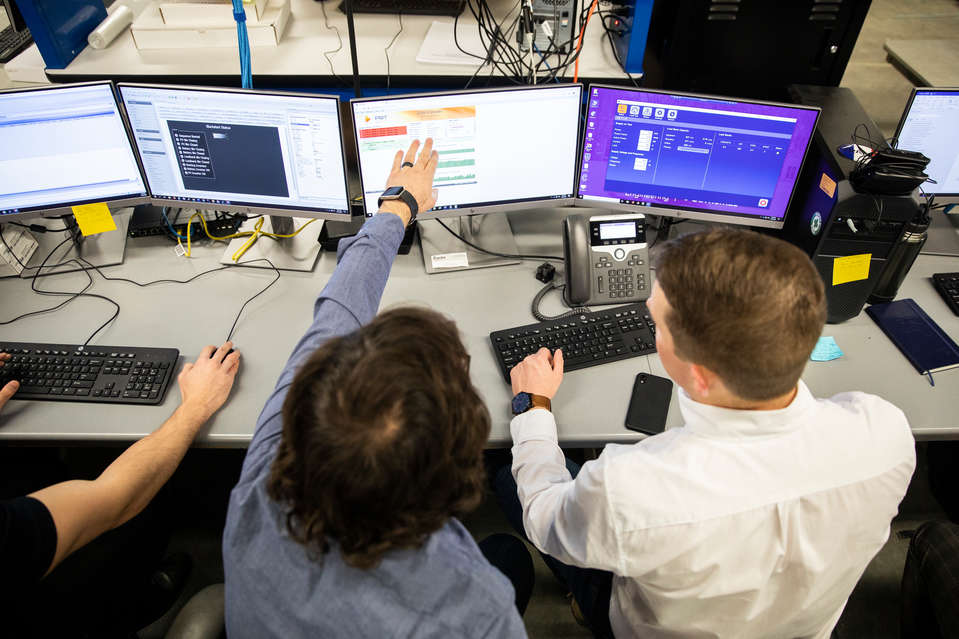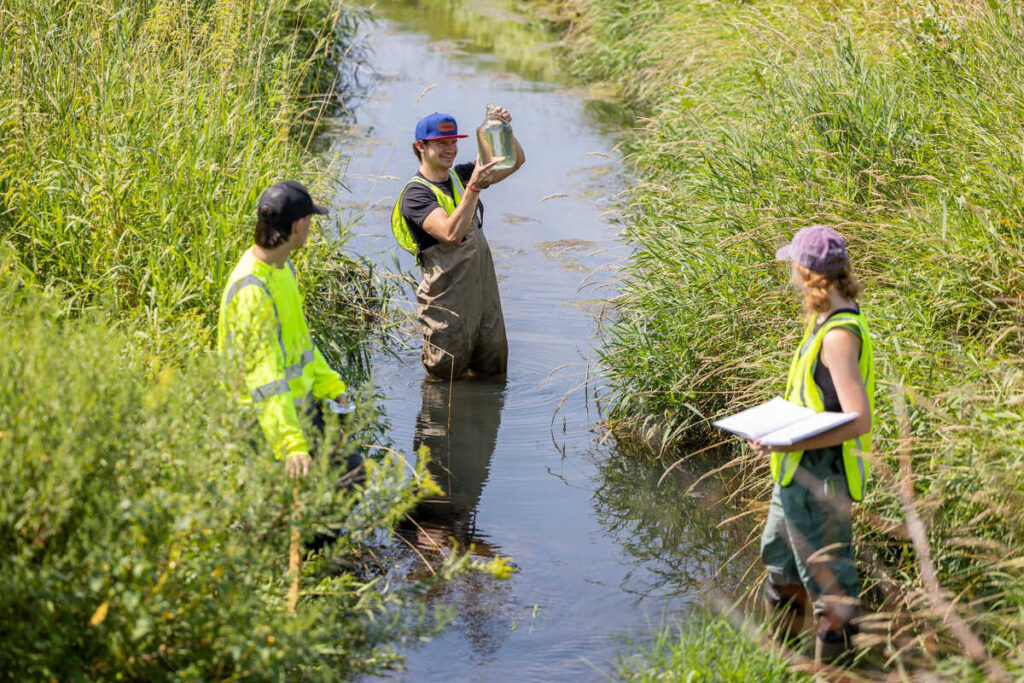In her sophomore year, engineering student Julia Lindell ’22 saw a posting on the St. Thomas student job board that would transform her time at St. Thomas and her career plans.
The post was a call for student researchers to join the Playful Learning Lab, an interdisciplinary research group where undergraduate students, educators and community partners join forces to create hands-on experiences for pre-K and K-12 students and educators.
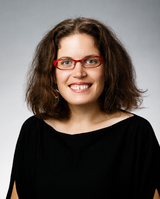
“I had heard of the lab through Dr. AnnMarie Thomas, its director,” Lindell said. “She gave a couple of TED Talks that I had happened to see before I came to college.”
Drawn to the engineering education aspect of the Playful Learning Lab, Lindell pursued the opportunity and has been working at the lab ever since. She enjoys her role so much that she even plans on pursuing a career in engineering education after college.
Lindell’s experience is just one in a number of research opportunities at St. Thomas. Grants for semester-long and summer-long research projects are abundantly given out to students, providing the opportunity to explore topics of interest as well as new schools of thought. Designing projects of their own and pursuing topics alongside faculty mentors in their fields is a unique opportunity.
“My office alone will fund 60 to 80 students for projects throughout the year,” Program Manager of Undergraduate Research Opportunities Program Laura Bru said. She explained that the Undergraduate Research Opportunities Program contributes hundreds of thousands of dollars per year toward student and faculty research compensation.
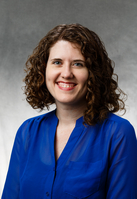
Bru continued, “As students who come to my office find out, if they dip a toe into their departments, colleges and some of the centers here on campus, they will see there are a lot of overlapping ways to get involved.”
Student researchers have the opportunity to work toward a greater goal of discovering new insights on a topic and broadening modern-day understanding. Lindell says it has been a blessing to work in deaf education through the Playful Learning Lab as she has learned more about deaf culture through the experience.
“It’s always a wonderful experience to go and teach the middle schoolers. They are such a joy,” she said “That is not something I would have been able to experience elsewhere. It's amazing to see people experience and wonder about engineering.”
Many departments have research assistant positions where students can work with faculty and community organizations on ongoing or new research projects, some even putting together teams of students to work on projects collaboratively.
For example, the Center for Applied Mathematics in the College of Arts and Sciences posts open projects each year, recruiting students across many different disciplines to work on solving a specific issue. The center has fostered an environment that promotes innovation as groups of students with diverse skills and class backgrounds work together to investigate a problem.
Students can work closely with faculty conducting major interdisciplinary projects in various colleges such as the Opus College of Business and the College of Arts and Sciences.
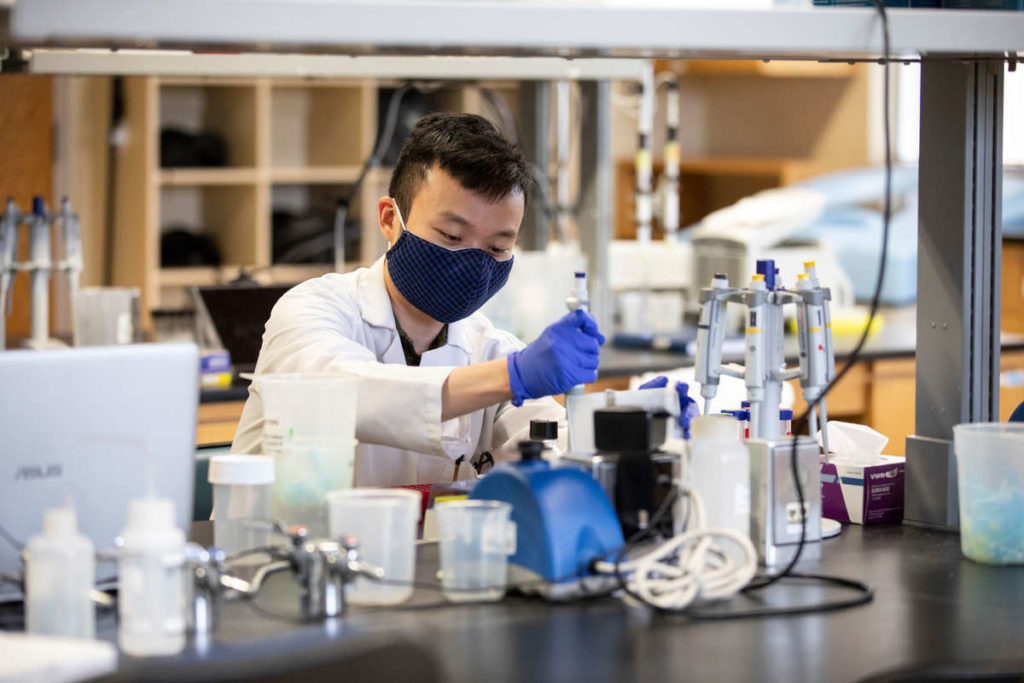
Other examples include the Innovation Scholars programs which encourage entrepreneurial thinking as students analyze a new product, innovation or idea in development in medicine or health care. The Innovation Scholars programs, the Mayo Innovation Scholars Program (MISP) and Innovation Partners (IP), are a collaboration between Mayo Clinic, Medical Alley and select Minnesota private colleges and universities.
In addition, the Excel! Research Scholars Program targets underserved students, preparing them for the rigor of graduate school. Students who are a part of the program begin in the Summer Research Institute, an eight-week program where students learn valuable skills such as how to conduct research, and conclude the program in the fall.
Other undergraduate research opportunities include the Sustainability Scholars Grant, Interreligious Research Fellows Grant, Conference Travel Grant, Research Travel Grant and more.
Caleb Limesand ’22 was selected to receive the Collaborative Inquiry Grant this past fall, investigating into the question, “How does situational stress impact postural stability among college students?”
“I had a great experience doing research at St. Thomas. I was able to find a gap in the current literature and run with the research question,” he said. “I enjoyed how St. Thomas gave me a lot of flexibility and ability to do things on my own, while also having my professors/advisers, Dr. Scibora and Dr. Korak, guide me along the way.”
The benefits of student research extend beyond the four-year experience. Mechanical engineering student Sarah Ziemann ’22 said, “Undergraduate research opportunities at St. Thomas have transformed me into a better writer, a better scientist and a better overall student.”
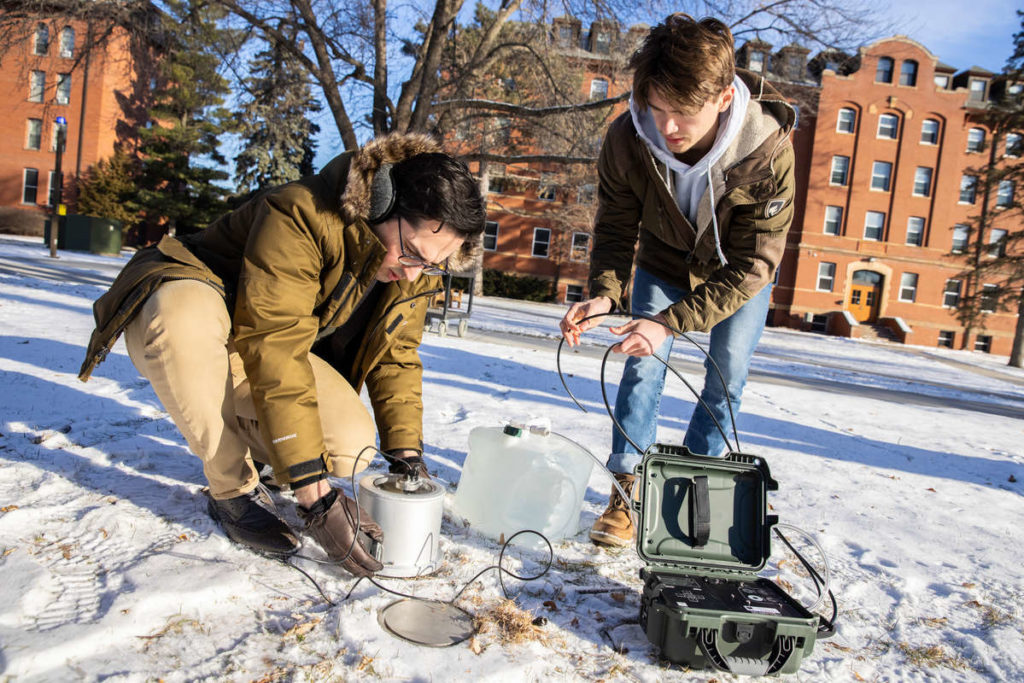
To find research opportunities, students can explore the faculty directory to see which of their professors is engaging in research. Students can also directly inquire with their professors about current openings.
“It's an excellent opportunity to get to know your professors. You don’t need to be an expert or at the top of your class to do research. They are excited to have anyone who is interested in the subject help them out with whatever they are working on,” Lindell added.
Find more information on upcoming fall research options on the Undergraduate Research Opportunities Program website or on the student job board.
